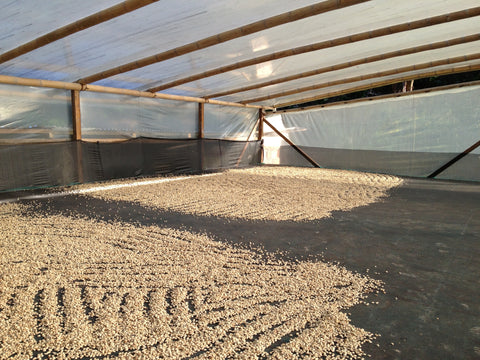Colombian coffee is renowned worldwide for its quality, complexity, and versatility, and one region that stands out is Cauca. Located in the southwestern region of the country, Cauca is blessed with a unique microclimate that provides optimal conditions for growing high-quality coffee.

The Cauca region is characterized by cool temperatures, high humidity, and regular rainfall, making it ideal for the slow ripening of coffee cherries and the development of complex flavors and aromas. The region is famous for producing exceptional Caturra beans, which are renowned for their sweetness and balanced acidity.

One process method that is particularly famous in Cauca is the washed process, which involves removing the outer layers of the coffee cherry using water and fermentation. This method results in a clean and consistent taste profile, highlighting the unique flavor notes of the beans. In Cauca, this process is often extended to a 24-hour fermentation period, during which enzymes break down the mucilage layer surrounding the beans. This extra fermentation time allows for greater complexity in the cup, as well as a more pronounced acidity and sweetness. The 24-hour fermentation process has become a hallmark of coffee production in Cauca, and is a testament to the region's commitment to producing high-quality coffee through traditional, time-tested methods.

At Tectonic Coffee Company, we are proud to work with coffee producers from Cauca, including María Rosa Gomez (Coffee released 2.27.23), who embodies the passion and dedication of Colombian coffee producers. Her farm, La Milagrosa, showcases the exceptional quality of Cauca coffee, with tasting notes of honey, raisin, and Assam tea.
By working with producers from the Cauca region, we are committed to promoting ethical and sustainable coffee production, and to sharing the unique flavors and aromas of this region with our customers.

